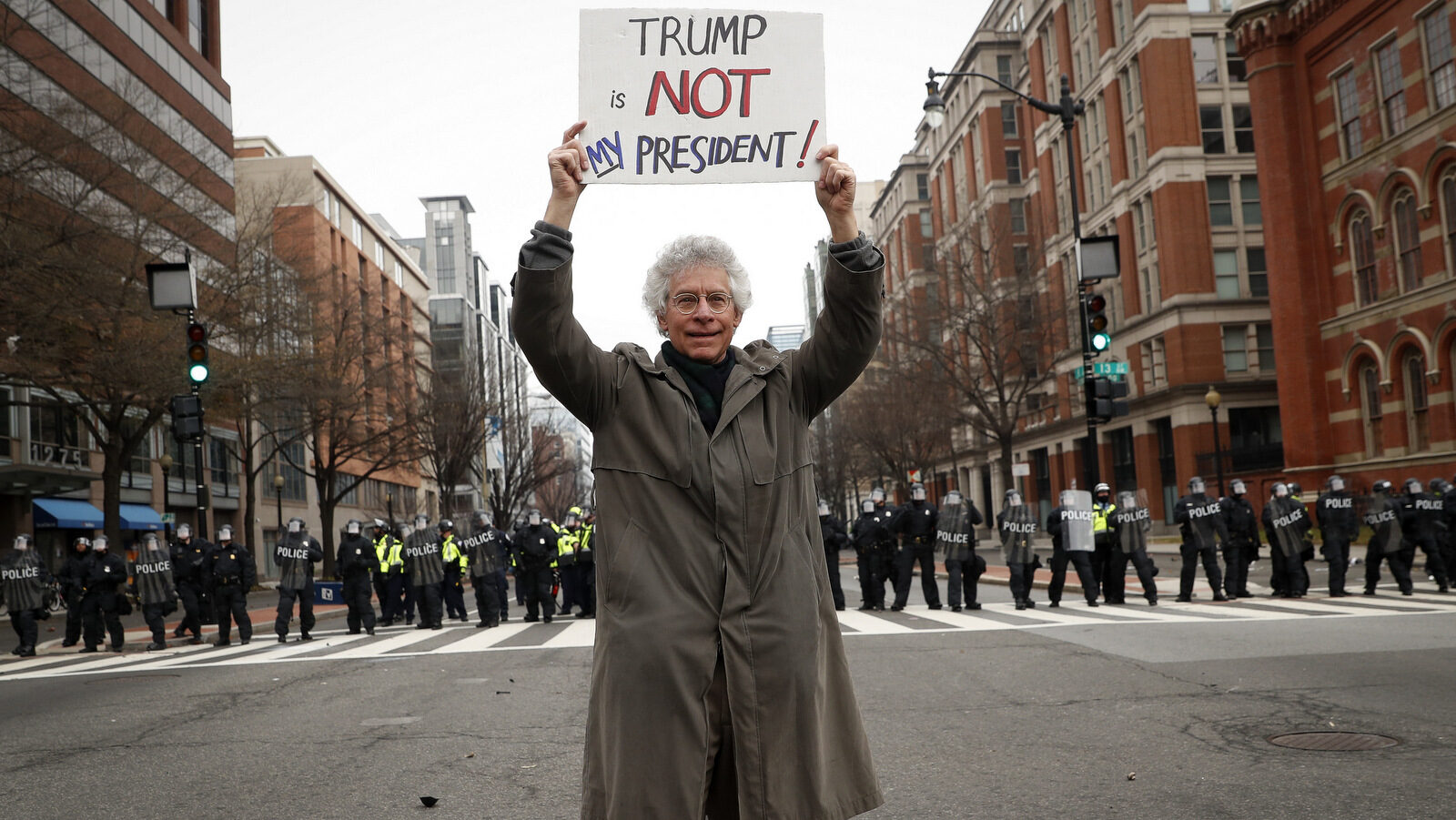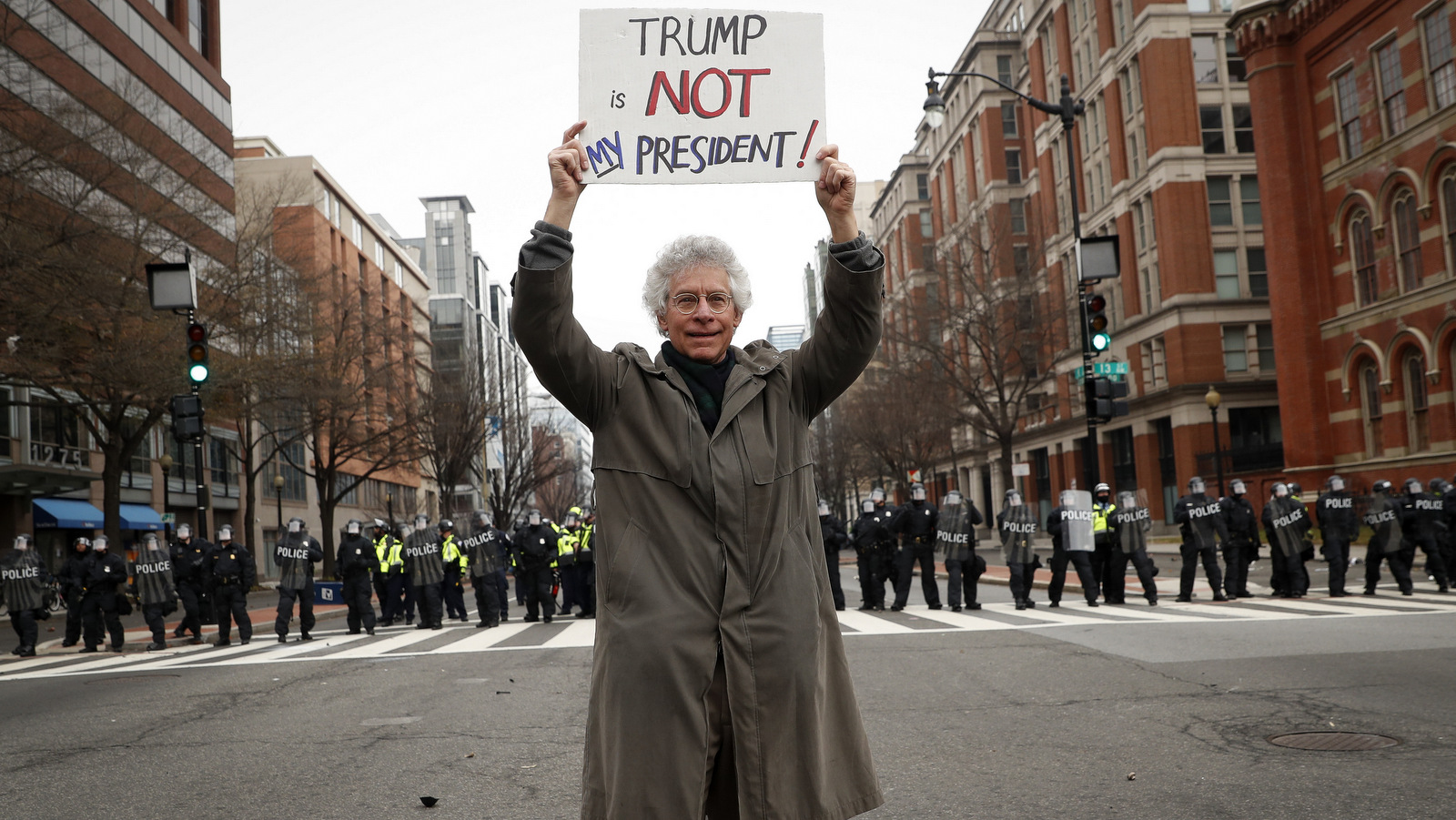
WASHINGTON — Thousands protested the incoming presidency of Donald Trump on Friday in the largest demonstration against a presidential inauguration for at least a generation, since Vietnam War protesters disrupted Richard Nixon’s second inaugural parade in 1973.
Together with simultaneous demonstrations across the United States, as well as massive Women’s Marches, which drew hundreds of thousands of people throughout the country and around the world on Saturday, these events comprised the biggest political mobilization in U.S. history.
In the nation’s capital, multiple demonstrations weaved through the streets on Friday as some groups clashed with police, broke windows at Bank of America, McDonald’s and Starbucks branches, and set fire to a limousine, as well as barricades they had erected to block police.
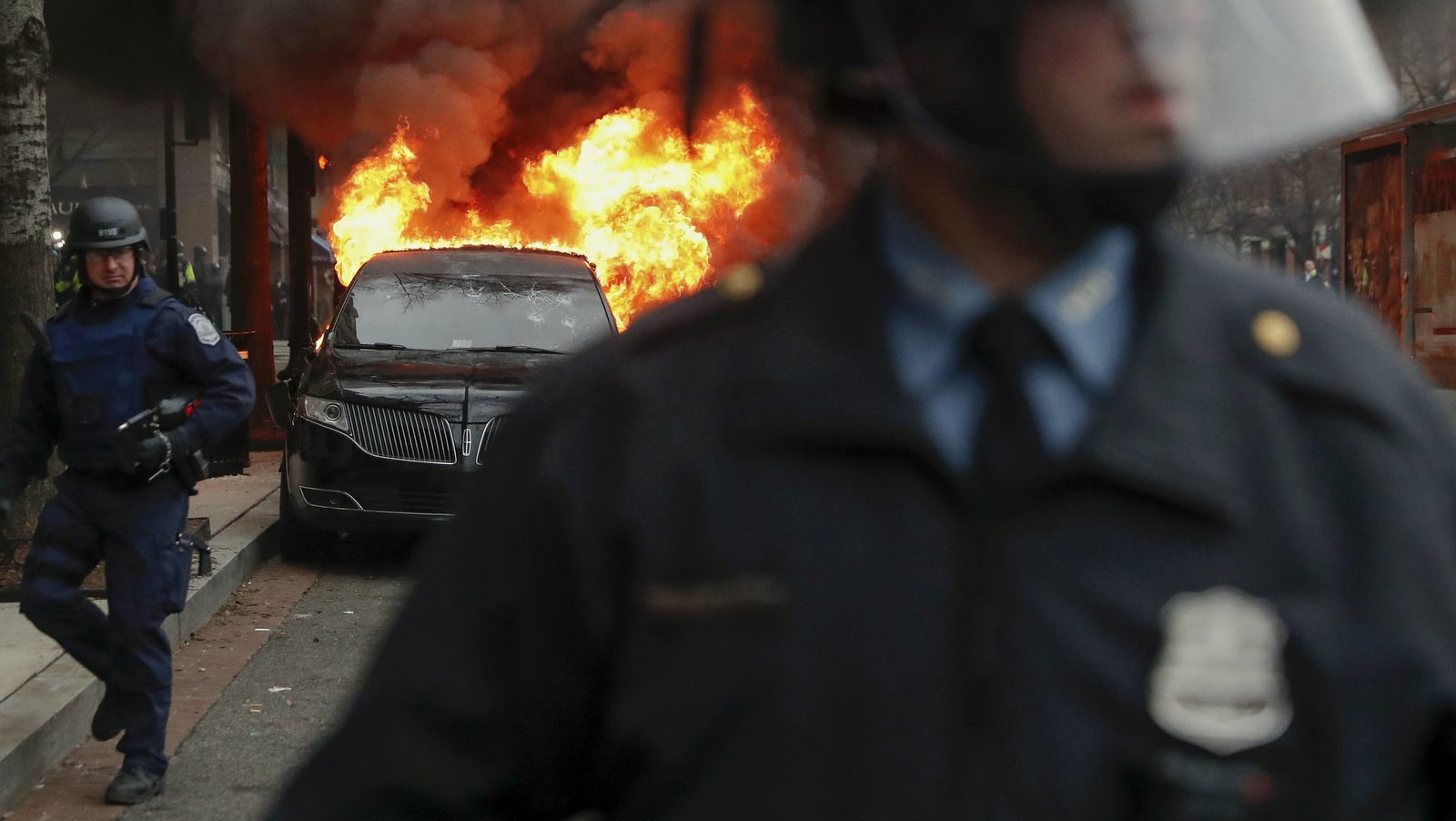
Police had already cracked down hours before the marches began, blocking access to rally sites, angering many protesters unable to reach them and driving hundreds into the streets.
“Perhaps as many as 10,000 people spent hours waiting in line to pass through the checkpoints to enter the protest, and thousands never made it in,” Ben Becker, an organizer for the ANSWER Coalition, which rallied at the Navy Memorial along the inaugural parade, told MintPress News.
“The checkpoints were sporadically closed and nearby roads were segmented off without warning or reason, which stopped people from accessing the protest from other directions as well.”
‘They arrested everyone’

While most demonstrators seemed unattached to specific organizations, drifting between events or trying to reach the parade route, other groups that mobilized included the #DisruptJ20 coalition and Workers World Party, whose marches merged shortly before the noontime inauguration.
Blocks away, police fired pepper spray, tear gas canisters and concussion grenades at other protesters before surrounding them in groups and arresting roughly 230 people.
On Saturday, federal prosecutors said most would face charges of “felony rioting.”
Under D.C. law, the charge, which requires “serious bodily harm” or “property damage in excess of $5,000,” could subject “every person who willfully incited or urged others to engage in the riot” to as much as ten years’ imprisonment, as well as fines up to $25,000 each.
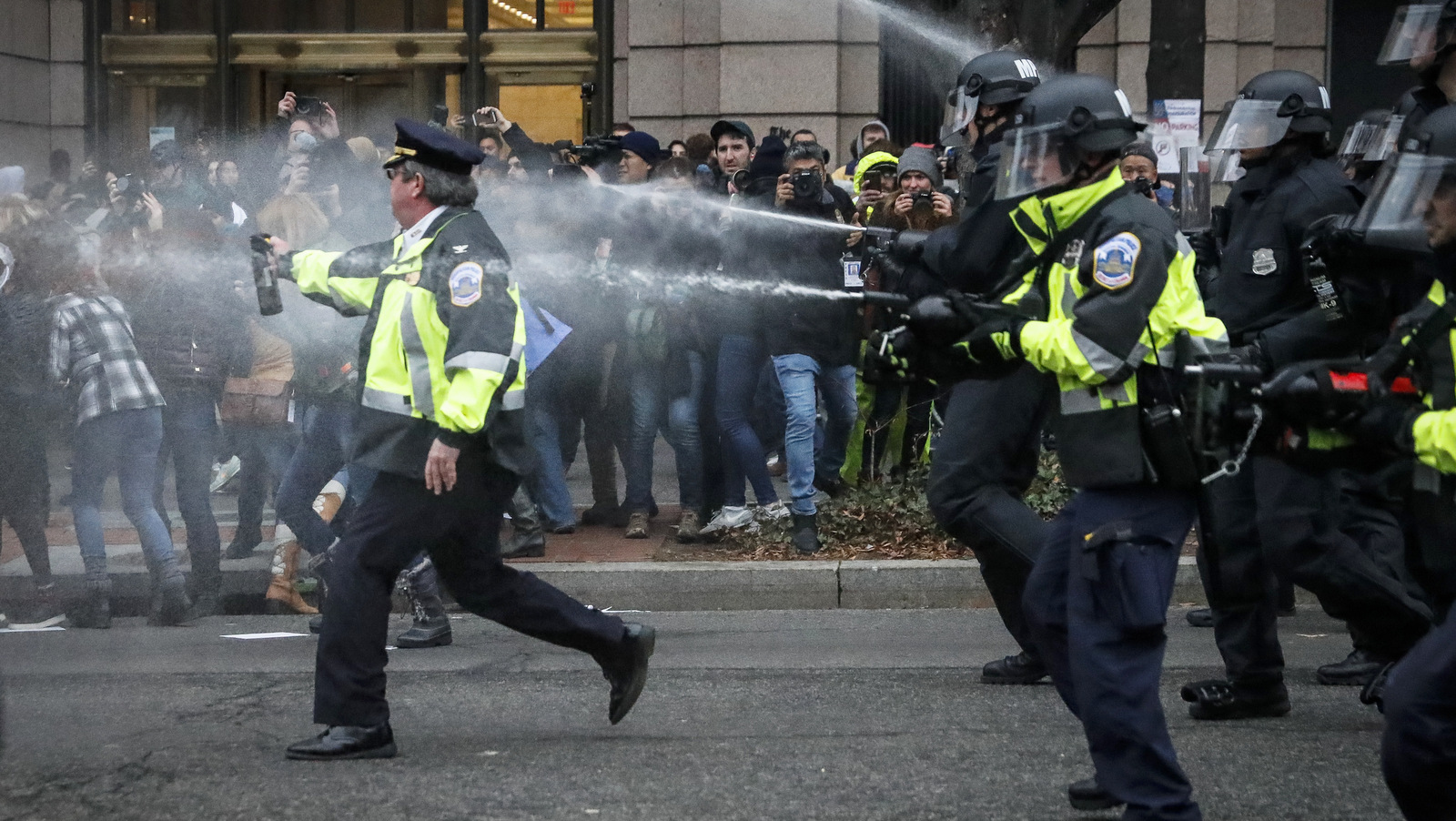
“I have been representing protesters for 13 years now, and I have never seen felony rioting charges in Washington, DC,” Jeffrey Light, an attorney working with the #DisruptJ20 legal collective, told Alternet. “It is not one of the standard laws that they tend to use.”
Mark Goldstone, another Washington-based attorney, said on Sunday that police had “basically identified a location that had problems and arrested everyone in that location.”
“They arrested everyone in a single location including reporters, lawyers, law students, and non-riotous protesters,” Goldstone, who is representing about 50 of those arrested, told The Associated Press.
‘Regular people from all walks of life’
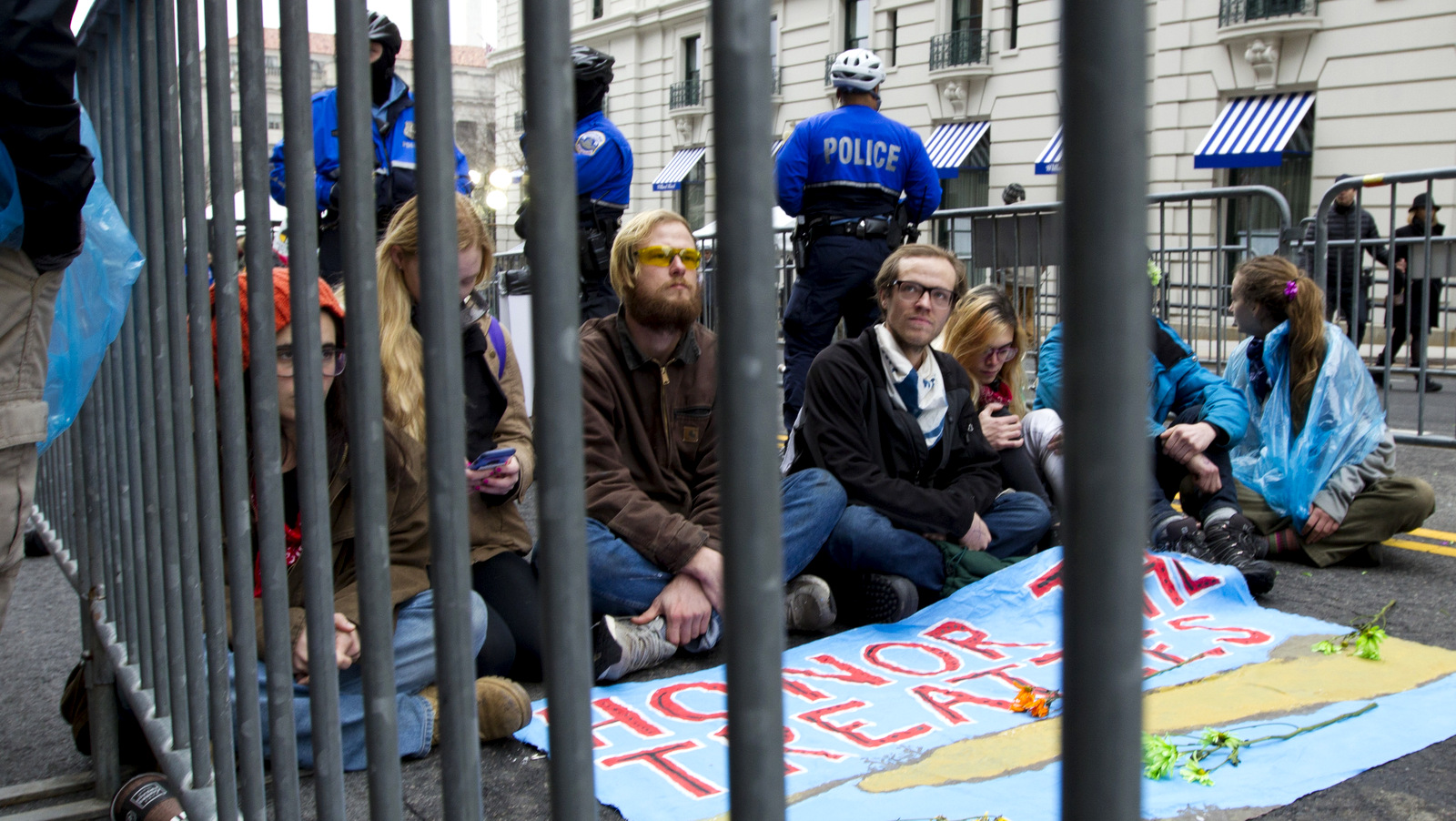
Along with new restrictions on protest, which included an unprecedented Secret Service ban on media coverage of the Navy Memorial protest, the mass arrests and draconian charges lead many veteran protesters to fear D.C. police are returning to the repression of past years.
“From the way checkpoints were run, we should expect law enforcement to try to stymie any resistance,” Esteban Guevara, whose busload of protesters from New York was among those able to reach the Navy Memorial, told MintPress. “And the people resisting are regular people from all walks of life, from immigrants to folks who are afraid that healthcare will be lost.”
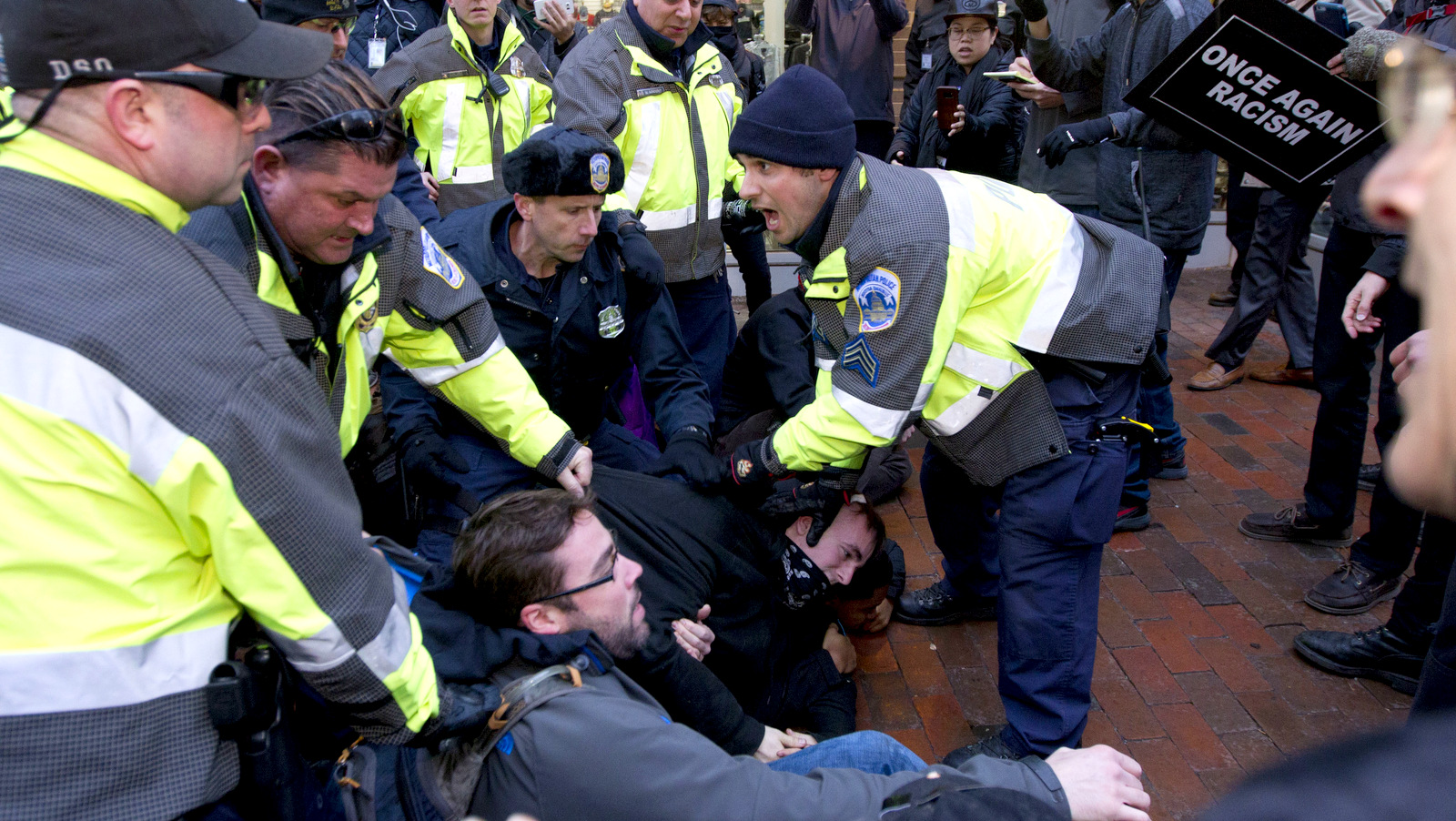
The Metropolitan Police Department tempered its policing of protests after two class action lawsuits, which cost the city millions of dollars, followed mass arrests of demonstrators at summits of the International Monetary Fund and World Bank, held in 2000 and 2002.
The inaugural arrests and heavy subsequent charges might indicate an attempt to restore the department’s options to their earlier levels, while using the threat of felony convictions to increase prosecutors’ abilities to negotiate cases, including settlements that could preclude civil actions.
By Friday afternoon, Light’s office had already filed a similar class action lawsuit.
Police surrounded protesters “[w]ithout warning and without any dispersal order,” then “proceeded to indiscriminately and repeatedly deploy chemical irritants, attack the individuals with batons, and throw flash-bang grenades at the kettled individuals,” the complaint alleged.
‘The real popular mandate’
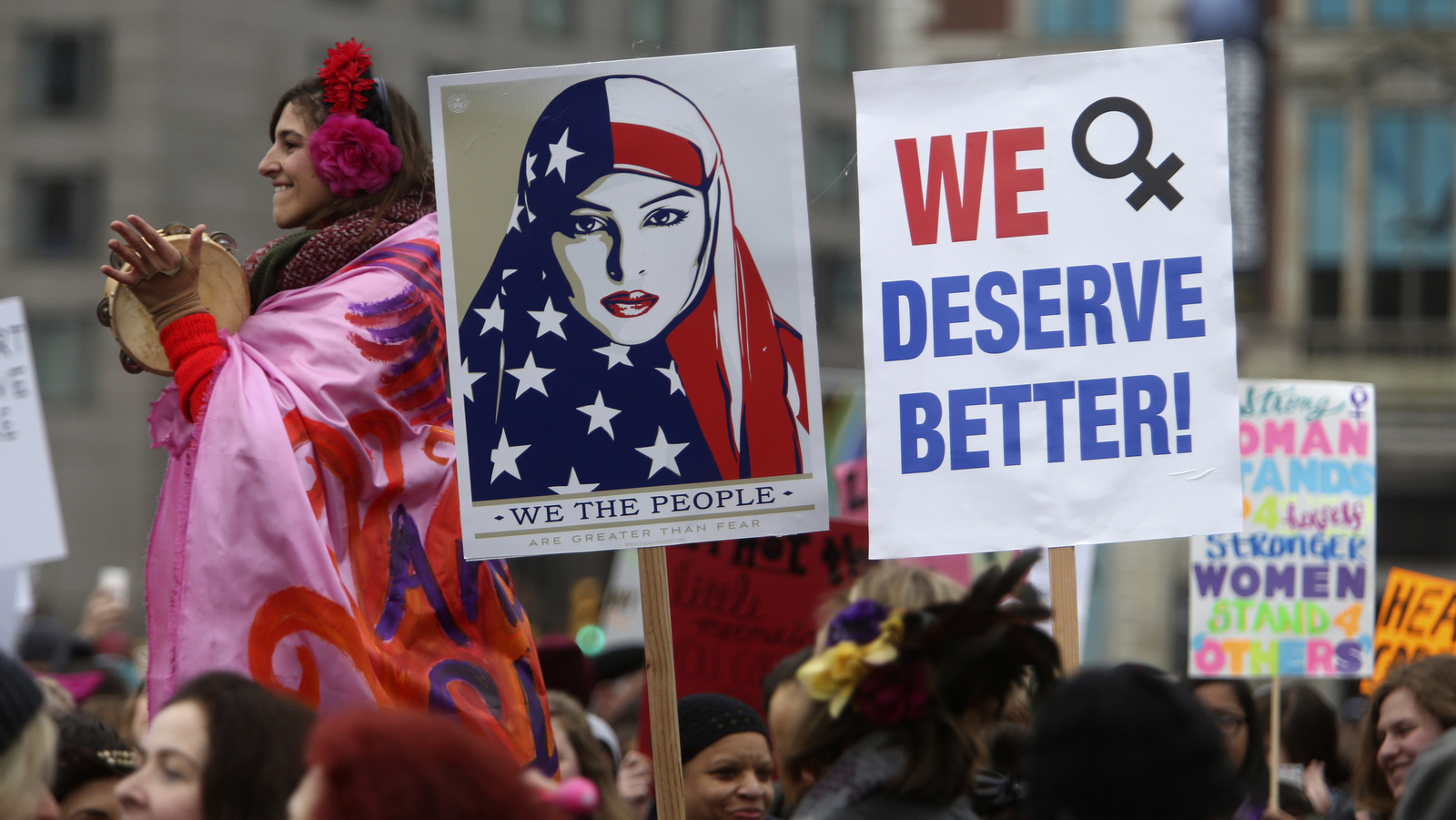
As officers packed detainees into vans and drove them through crowds of demonstrators who had gathered around the scene in support, other actions continued nearby.
Throughout the day, protesters ranging from Standing Rock water protectors to Palestine solidarity activists to Movement for Black Lives members blockaded inauguration checkpoints, using human chains, and in some cases actual chains, to close access to the parade route.
As the inaugural events came to an end, the crowds and smoke dissipated, with many protesters from other cities returning home as others stayed behind to march again the next day.
But with the incoming administration promising to reach aggressive new heights in its support for pipeline construction, Israel and “law and order,” among other right-wing causes, many protesters expect their work at home to be cut out for them in the coming months.
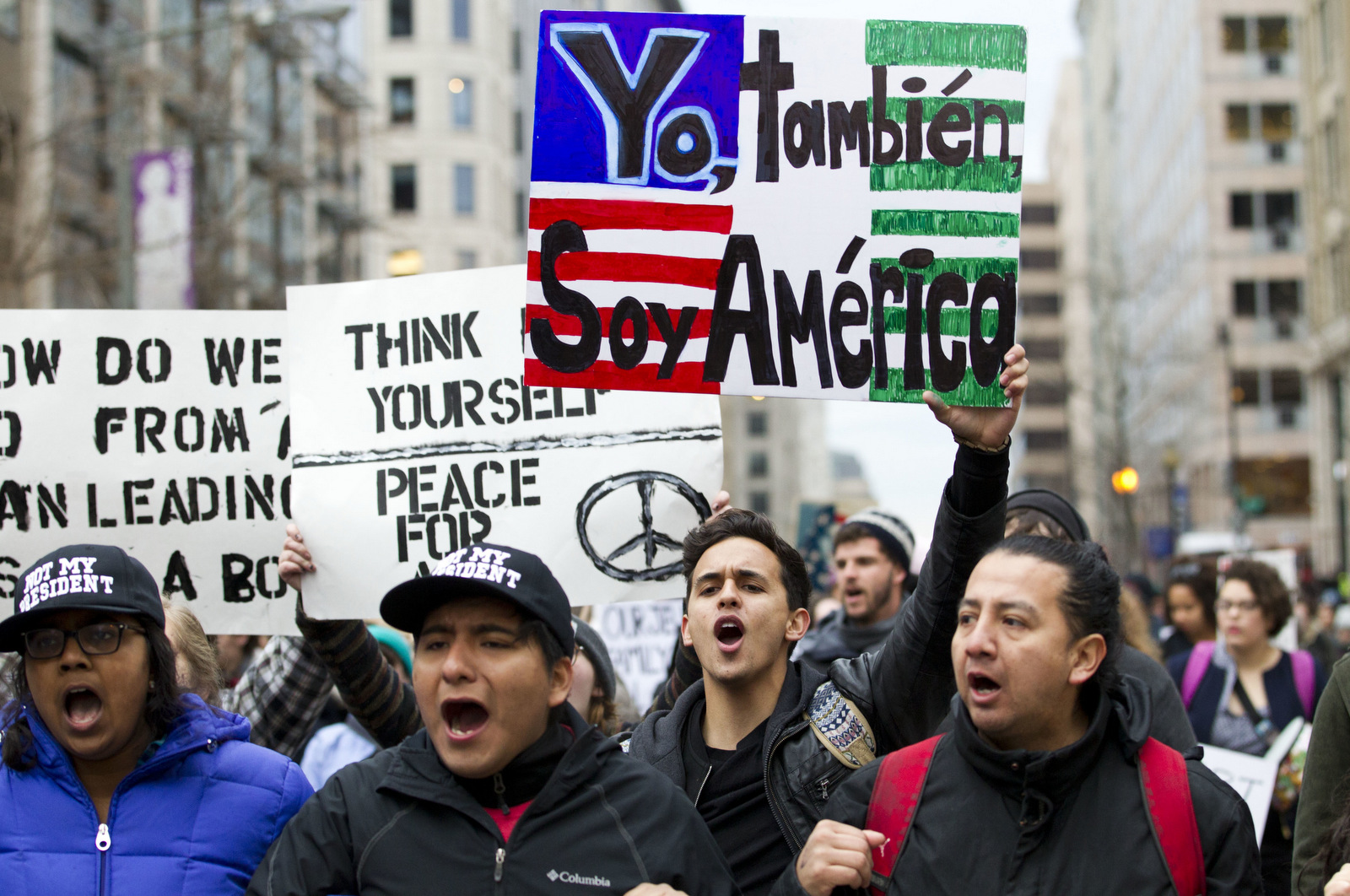
“J20 is not just one day, but the start of a mass movement,” Bethany Koval, a Bergen Community College student and Party of Socialism and Liberation member in Paramus, New Jersey, who attended the ANSWER protest, told MintPress. “Now is a time for local organizing.”
At the same time, Becker added, outpourings of popular opposition should continue.
“There is no question that mass mobilization must be a crucial component of this to confront and stop the attacks that Trump and the Republican party have planned,” he said. “The ruling class was deeply worried during the campaign that Trump, if elected, would become a target for mass domestic and global resistance to the U.S. government and the U.S. empire as a whole.”
“The scale of this weekend’s activities show that their fear was well-founded,” he added. “The people in the streets have the real popular mandate.”


